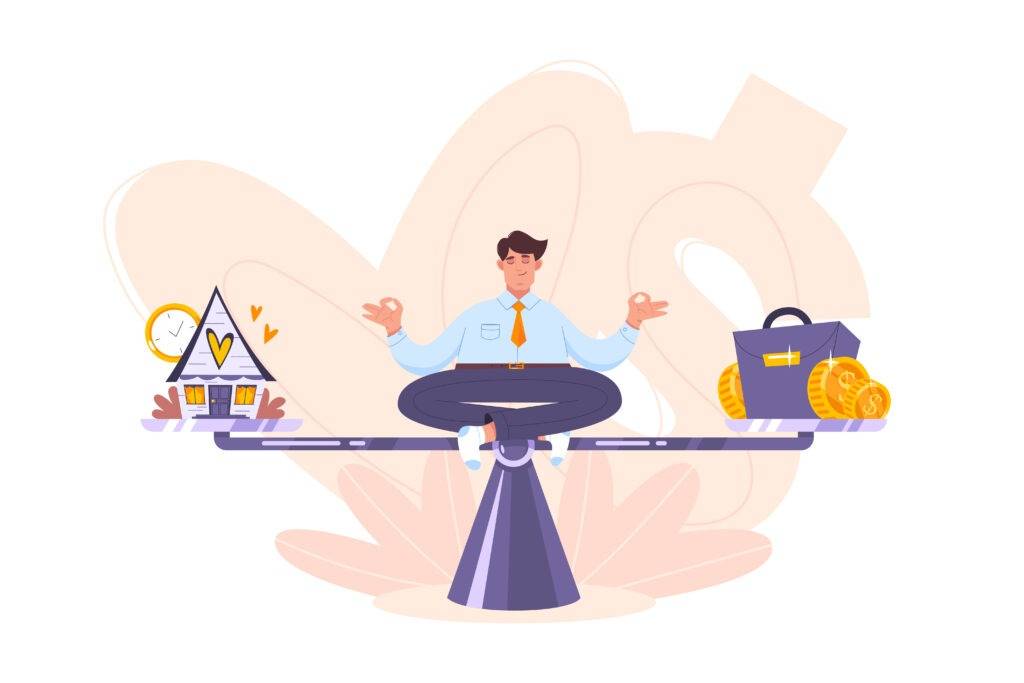
The Problem With Being Human
The problem with being human is our unfettered access to information. While access to an unlimited supply of knowledge should benefit us in terms of progress, it seems to have backfired. With all the comforts information may grant us, humanity always finds a way to manifest issues that are entirely conceptual.
The problem therein lies in the perception we choose to accept as the reality we paint for ourselves. Responsibility for emotion is much easier to dodge when we can pin the blame on someone else. The problem then is a denial of absolute fact and an acceptance of emotional truth.
In our rapidly developing world, technology seems to pervade every aspect of modern-day living. From the outset, this should be a very beneficial tool. We should utilize this technology to make life much more pleasant than it was hundreds of years ago.
From leaps in medical progress to becoming more efficient in our day-to-day working tasks. These advancements should help us as a worldwide society to strive toward a brighter future.
With these unprecedented breakthroughs, we should be treating one another more kindly and encouraging others more ardently. We should be sharing the wealth and abundance so everyone can embrace a more rich and comfortable lifestyle.
So what is the problem here? Aren’t we moving towards this all-inclusive future?
Unfortunately with the rise of access to information, we have also run into a little snag in being human. We are now aware of the slight differences that separate us. The problem with being human is that we are now hyper-focused on the things that separate us rather than the things that should bring us together.
Now I’m not talking about the obvious physical differences between us. No, I’m referring to the psychological belief systems that seek to place us into strict categories by labeling Us Vs. Them.
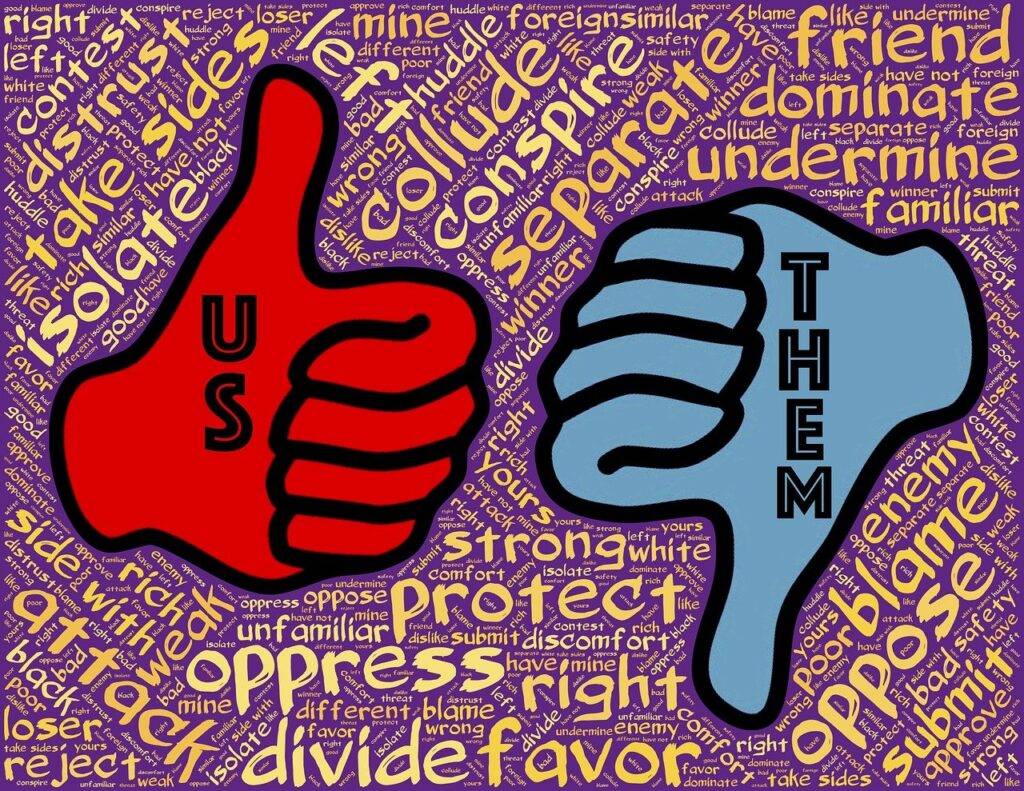
Division is Part of Being Human
I think everyone can agree that most individuals want the same things out of life. We all desire a steady income to afford the rent and support our families. Everyone also wants a happy living space and a fulfilling occupation that brings satisfaction and purpose to their lives.
These are very generic and broad goals and the specificities may vary from person to person. But the core fact remains that most people desire the same basic needs in life. It’s innate to our survival of being human.
However, it is the slight differences among us that begin to divide us. Controversy and unhealthy debates seem to create a chasm of disparity among those who hold different ideological opinions.
This generates emotions that breed a sense of importance and self-righteousness for how things ought to be in the world. The major problem stems from these differences.
As controversial headlines run rampant and emotions are at an all-time high, it appears as if we aren’t accomplishing anything. We have real-world issues and problems that need addressing.
But people don’t seem to be listening to one another. Wasting needless energy in endless debates then diverts focus from solving critical problems that need our attention.
Instead of finding a happy medium where both opposing viewpoints can agree on, we settle for arguing for argument’s sake.
Both parties remain headstrong, and it becomes a verbal battle of feelings, uncompromising characters, and narrow-minded childish behaviors. Humanity revels in the entertainment of conflicting emotional truth rather than analytical fact.
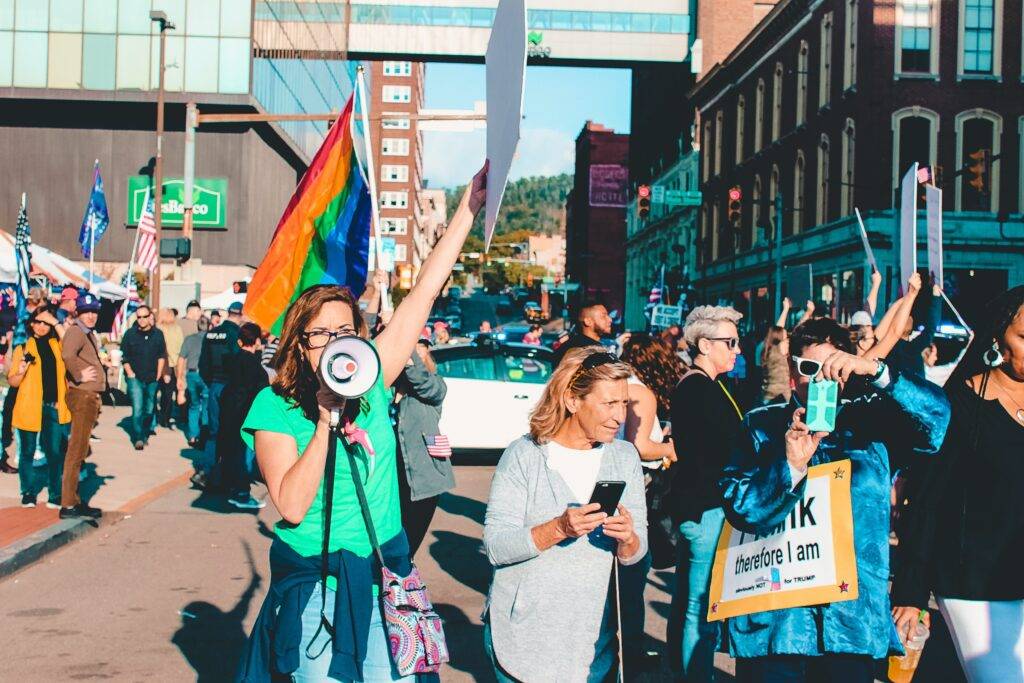
The Problem Threatens Our Identity
Experts have stated that our brains tend to seize up and refuse to take in new information during an argument. This is known as confirmation bias, and it is especially true when we hold beliefs and views in high regard to our own identity.
This could be a major problem if we are trying to progress towards a better future. If you’re receiving any facts or evidence that may contradict your firmly held convictions, it no longer becomes a conflict of debate, but a contention of character.
People are no longer just questioning your opinion, but it feels as if they are attacking your integrity. At this point, rationalization might as well be thrown out the window.
Emotional truth takes rein to defend any beliefs that may seek to threaten your identity. The problem with being human here is that we think our perspective of the world is the best and that everyone else should get on board with our agenda.
Imagine someone approaches a group with a proposal to build a new animal reserve that seeks to protect endangered species. We will assume they are a group of environmental and animal rights activists.
If this is the case they would be on board with that mission and would wholeheartedly agree.
However, the required land space that must be set aside to make this a reality is currently occupied in a forest where other animals have settled into their habitat.
Uh-oh, maybe that’s not such a good idea now. But the builders and investors assure them that all of the animals will be relocated to a new, safe home. No creatures will be harmed during production.
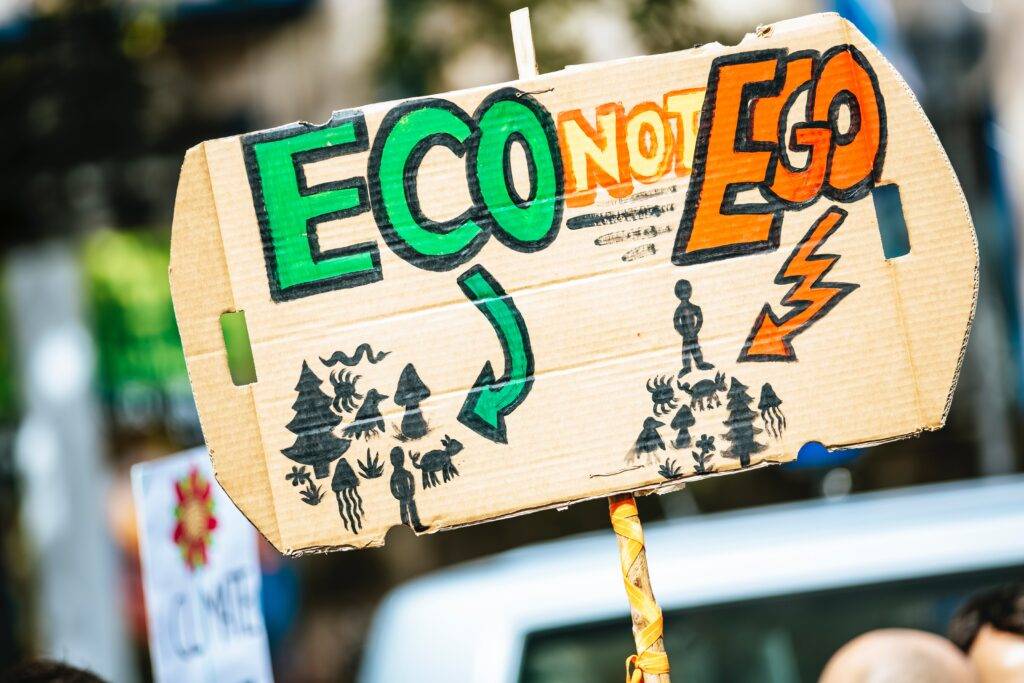
Rationalization Can’t Combat Emotional Truth
Some individuals will nod their heads and think, “Makes sense, I don’t see why not.” Others will strongly identify with being an animal rights activist on the matter. They may refute the barbaric disruption of these poor animals’ habitat not to mention the contribution to deforestation.
The investors can rationalize all they want, but if this piece of identity is held firmly in place for said group of individuals, they will not budge on those ideals.
There may be ample assurance that no animals will come to harm. And everything is going to be for the betterment of those endangered species. However, some of these individuals will still feel as if they are compromising a piece of who they are.
In this circumstance, it is much more difficult to convince someone to do that than the former. If they have to sacrifice their emotional truth in who they believe themselves to be, chances are it’s going to take a lot more than logical rationalization to convince them to see the other side’s point of view.
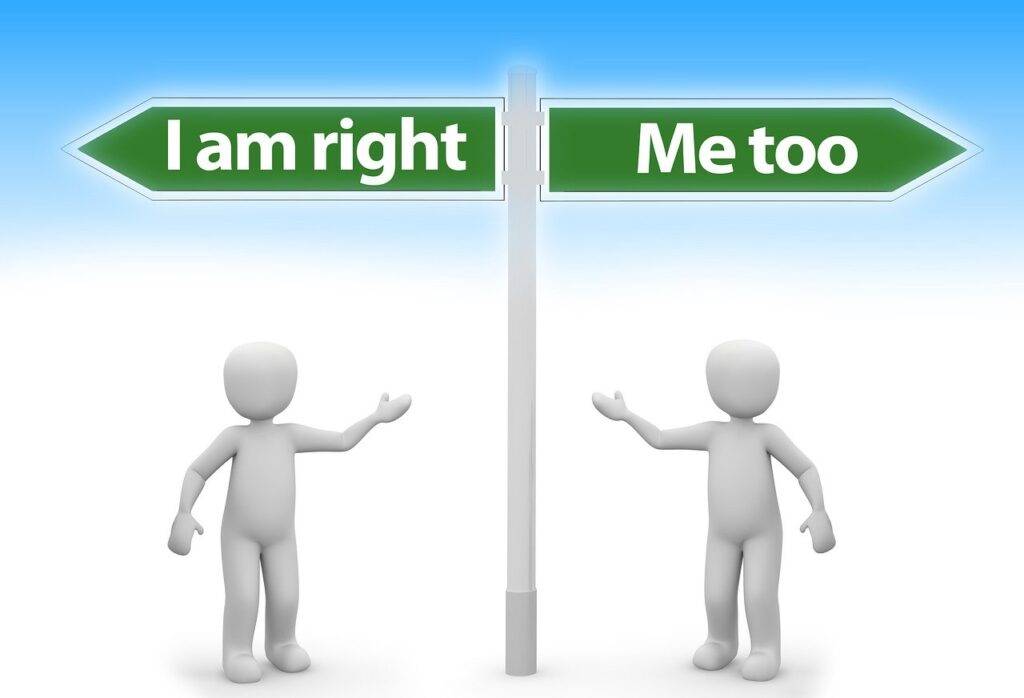
Refusal to Compromise
This is where the tip of the iceberg begins with everything that is wrong with people today. It all derives from this constant bickering between one another through immature, childish values. The problem with being human is that we don’t communicate with each other.
We don’t listen, we don’t pay attention, and we don’t care about others as much as we do ourselves.
If someone doesn’t understand where another is coming from, I see most people just shrug their shoulders. They’ll chalk it up to a simple, “Well, they just don’t get it.” People smirk and the arrogance behind that gesture is baffling to me.
I suppose you can smirk all you want. You can even think, “Oh, they just aren’t enlightened, or educated, or dare I say ‘woke’.” It’s asinine.
What are you achieving in this case? Isn’t that reaction just as fruitless as the other party’s refusal to listen to your unique take on the issue? Maybe some individuals deserve that gesture if they’re blinded by their own egotism. Shouldn’t humanity be working together to move toward a better future?
If people took a step back and looked at their own approach and attitude to the discussion, perhaps we could move compromise to a happy middle ground.
Both parties might even learn something from one another if they both just stopped and listened. Maybe if people actually grew up we could solve some of these major world problems.
Sometimes it could potentially be you who’s out of line. After all, it takes the bigger person to actually sit through and listen to a healthy discussion of differing opinions without losing their temper. If both parties simply poke holes and flagrantly insult one another, what does that accomplish?
Absolutely nothing. Maybe an agreement can’t be reached as this does tend to happen, but that’s where one politely agrees to disagree.
Perhaps respect is the way through. Taking the opposing viewpoint into consideration will mark a huge step forward in progress for everyone. But the problem with being human is that we just don’t want to make that uncomfortable change.

The Paradox of Freedom
Due to this uncompromising nature, the maturity of our culture continues to deteriorate at an alarming rate. It’s no longer a debate of left vs. right, rich vs. poor, or religion vs. secularism.
We have moored ourselves in a swamp of indifference. The character, virtue, and respect for those who retain a different viewpoint than us have been completely disregarded.
The adult values that we should be seeking to cultivate as we grow have been overthrown by the childish values that continue to persist. In other words, we continue to physically mature, but mentally we have begun to stagnate.
As the developed world continues to spread its reach and influence across different nations, the central focus for an advanced society seems to revolve around the concepts of freedom.
If a nation is experiencing more freedom than its neighboring countries, it can universally be agreed that that nation is considered to be one of progression towards a better, more all-inclusive future.
Some of these freedoms include the freedom of speech, the right to practice your religion, the right to vote, the right to equal work compensation, and being able to choose what kind of clothing you want to wear.
The more freedoms we get to experience, however, the more we will inevitably come across viewpoints and ideas that may conflict with our own. Embracing your own vulnerability and just being yourself might actually cause others to question some of your ideals.
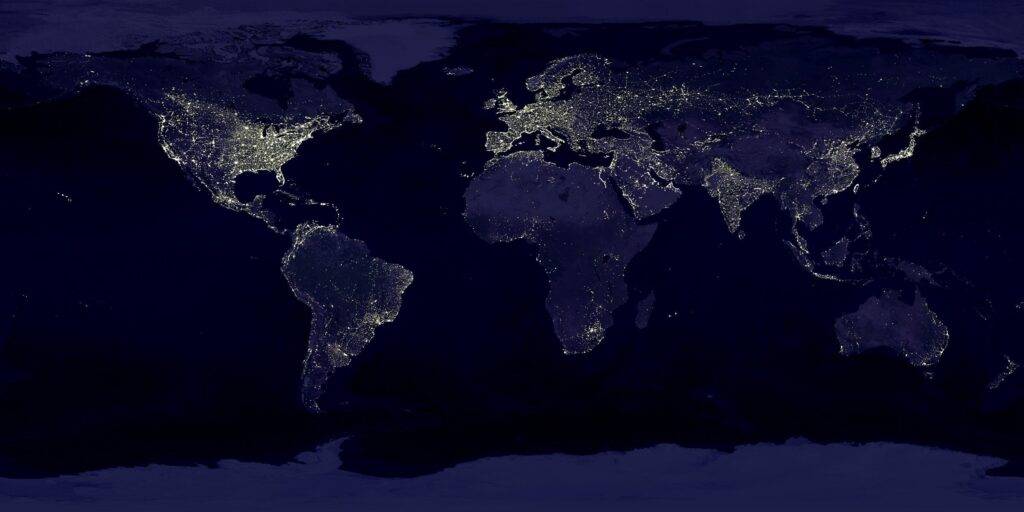
Freedom Demands Discomfort
Eventually, with all of these freedoms, we will have to compromise at some point. But it appears as if many people are not willing to do so. A large majority are still holding on to past systems and value metrics that were set in place decades ago.
They want to embrace these new freedoms they have been given. But they don’t want to acknowledge the same freedoms others have if it threatens any of their own personal values.
For example. Let’s say one group of people happily embraces the idea of practicing their religion. At the same time, a different group of people enjoys expressing themselves uninhibitedly – sexually even.
This uninhibited expression could offend the first group’s code of conduct. If that’s the case, then we have some unforeseen tension between the two groups of people.
Freedom itself demands discomfort. It demands dissatisfaction. Because the freer a society becomes, the more each person will be forced to reckon and compromise with views and lifestyles and ideas that conflict with their own.
Mark Manson
This goes for everybody. Nobody is immune to this fact. Inevitably, the more freedoms that are allotted to nations, the more likely we are to come across ideas that conflict with our own.
The more people can voice their personal opinions on life matters, the more others will experience inner tension. A cost of these freedoms is that everyone will eventually experience some kind of discomfort.
Due to the varying unique perspectives across the world on how one should conduct their life this is expected. Freedom demands this kind of discomfort. Being human is all about accepting other’s freedoms just as much as your own.
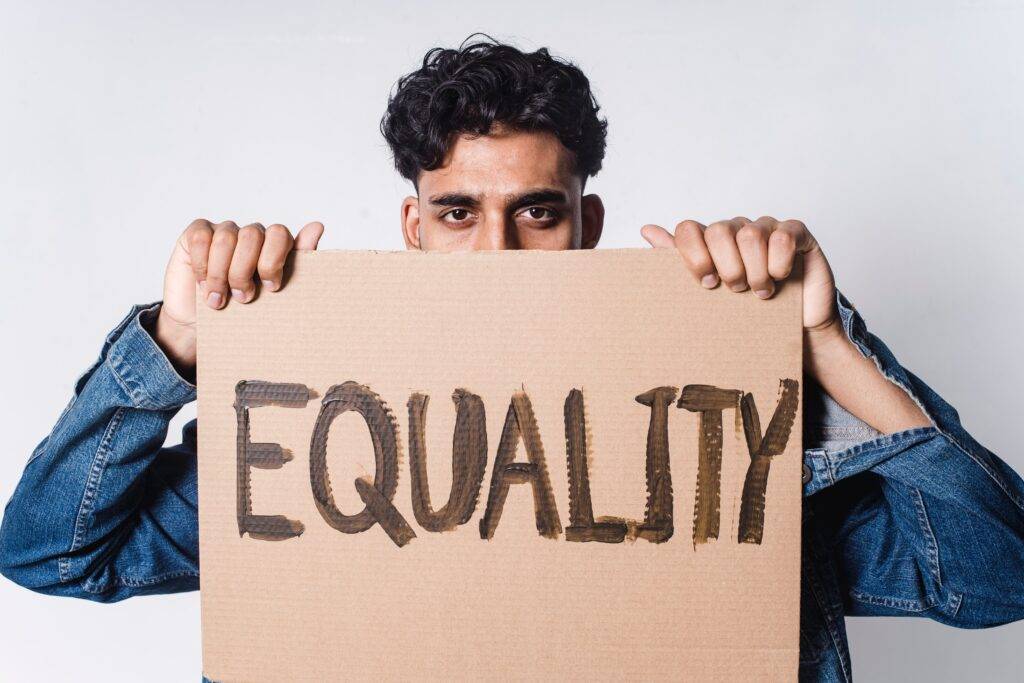
Acceptance of Differing Opinions
But people don’t like discomfort especially if it pertains to their own life values. This kind of tension and discomfort you feel when you hold two conflicting beliefs, values, or attitudes is known as cognitive dissonance.
As I stated earlier, some of these values are rooted in deep. If someone else’s values are in contrast to your own and you hold that value close as if it were a piece of your identity, you are going to experience some friction.
This is where protests, civil rights marches, and other political activist campaigns come into play.
Individuals involved in these movements will often cry out that others not “accepting” their way of life is in some form equivalent to a crime against their own liberty and basic human rights.
Don’t get me wrong, I firmly believe you should accept everyone just as they are. Given that it does not interfere with nor endanger another’s freedoms or well-being.
However, some individuals are just not going to be on board with your political stance. Even if you feel their personal opinion somehow insults your way of life, does not make it a fact.
Just because you feel offended in some way does not mean someone else has to adjust their entire value system or perspective on life to make sure you don’t feel personally attacked or offended.

Our Threshold of Pain Creates the Problem
This is more prevalent today than ever before. Someone looks at you too long and you assume they’re monitoring your every move. They must be racist. Oh really? How did you draw that conclusion? From a passing glance? Maybe they thought you were attractive or liked your shirt.
A stranger accidentally used the wrong pronouns and you go into a tirade of how insensitive and uncultured they are. How are they supposed to know what you prefer to be called? Perhaps they grew up in a more traditional setting where gender fluidity and non-binary topics were of no mention.
A religious practitioner laments your soul because you do not follow their God by attending the sermon every week. Or perhaps they pray for you since you don’t abide by the strict conduct it requires to enter eternal life. Maybe you are spiritual, but you’re still figuring it out. You don’t quite feel comfortable yet with what you believe. Perhaps you can’t determine what is certain and what is not just yet.
I think everyone can agree that we all have come a long way in terms of progress for the betterment of all people. Can we do better? Absolutely. There is always room for improvement. But are we worse off than we were hundreds of years ago? Definitely not.
From the abolition of slavery to the equal opportunities granted to both males and females to the free enterprise system of creating your own business, to the freedom of choosing who it is you want to marry, and determining what path in life you want to pursue.
As I said before, we still have a lot of progress that can be made. But a lot of people are still finding excessive and unnecessary things to complain about.
The injustices that exist today in our comfortable day-to-day headspace are nowhere near the extent of what we experienced in the past.
We are essentially creating problems that aren’t even there and magnifying them to an extent so that it keeps our lives interesting.
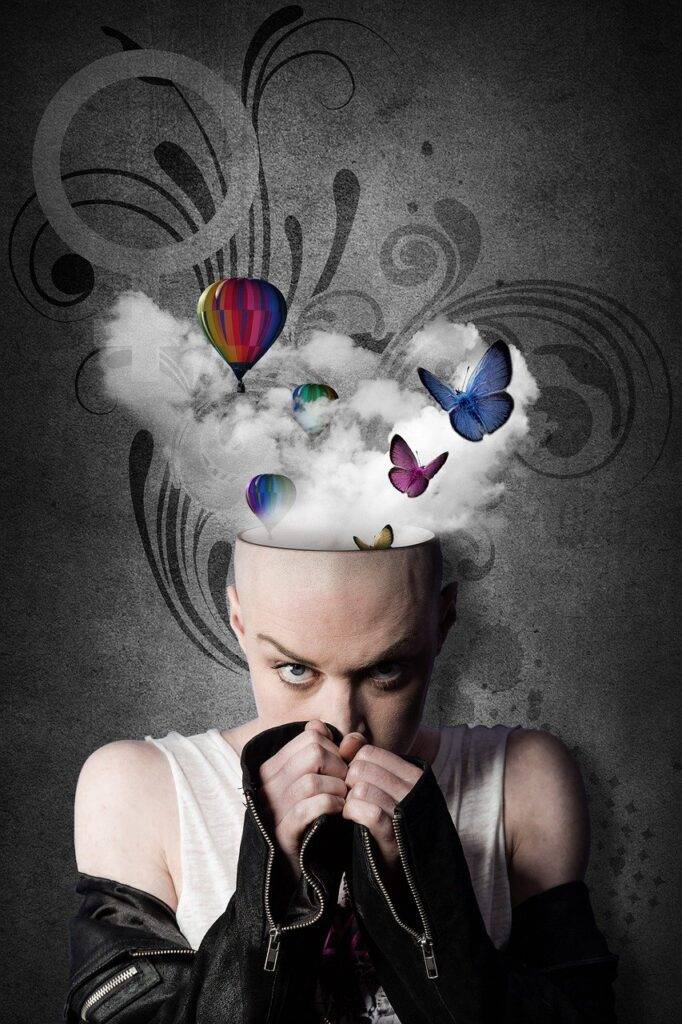
Comfort Creates Perception of Injustice
The more comfortable a society gets, the more minor transgressions will seem magnified and will appear to stand out. In the grand scheme of things, your issue probably isn’t that serious.
But your comfortable fluffy bubble in a First-world country makes it appear as if your life is ending. You think that the world is so unfair. You feel victimized, but are you really? A few hundred years ago, I would unquestionably agree that most people were the victim of some sort of injustice.
It is these perceived injustices that are causing discomfort among these individuals. As a result, these people have confused their basic human rights with not experiencing any discomfort at all.
People in today’s world have nothing better to give a shit about because they are so privileged. They have become entitled to the point that they actively seek out these threats. The more we look for threats, the more we will shape them to fit the problem we are supposedly experiencing.
We are reacting emotionally to problems that seem bigger in our heads. The fact is that the degree of pain that we experience today is shockingly lower than it was hundreds of years ago.
These emotional reactions don’t determine the actual size of the problem. But our minds amplify or minimize the problem to fit the degree of stress we expect to experience. This is known as prevalence-induced concept change in human judgment, and it was carried out by experts as an experiment known as The Blue Dot Effect.
In other words, if you feel that someone is being racist, sexist, or offensive in any way towards you, your mind will scrounge up any evidence it can make sense of and mold it into the truth that you seek to validate. As much as you don’t want to accept it, there is a difference between what you feel and what is reality.
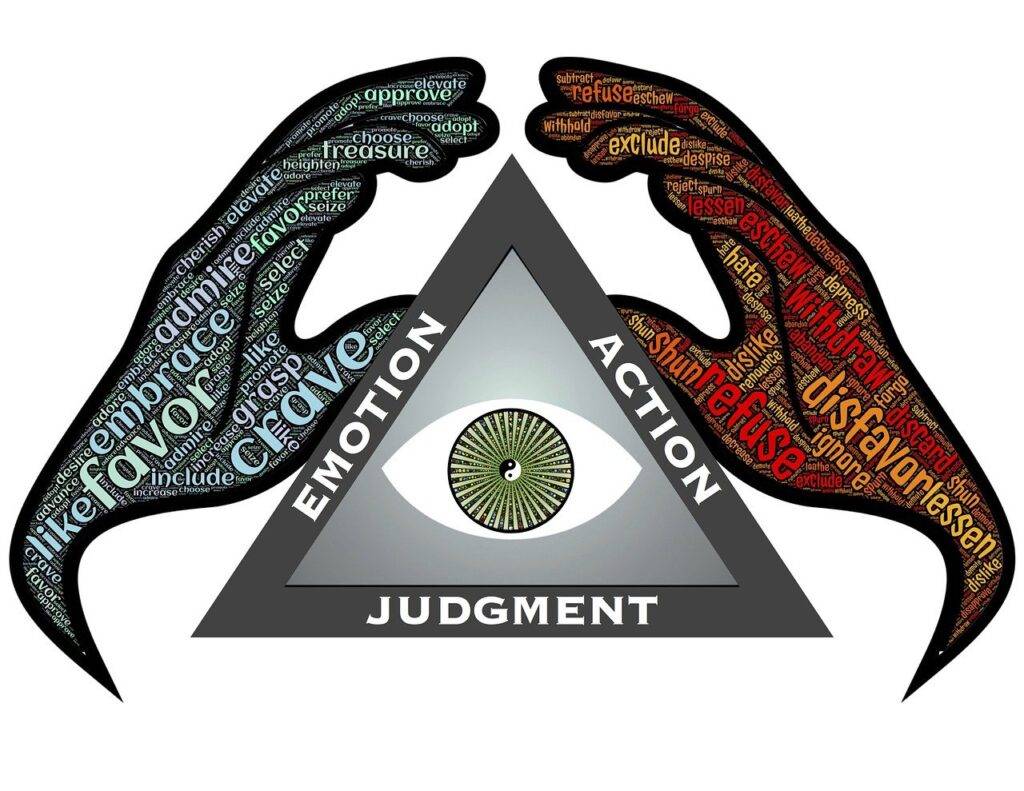
Accept What You Can’t Change
Everybody experiences suffering to a different degree when it comes to these issues. Suffering, in this case, contains two parts: the actual physical pain we feel and the meaning and emotion that we attach to that pain. Suffering is always a choice.
There is a difference between what we experience and how we interpret that experience just as there is a parallel difference between what we feel and what is actually happening in real-time. The emotional truth you accept might not be the truth for the person sitting across from you. Learn to acknowledge the difference between fact and fiction.
If you choose to let small indiscretions wreak havoc over your mental health, they will. You will magnify the issue until it is the appropriate size of stress that you deem fit for the personal matter you are dealing with. The problem with being human is that we think our emotions guide us towards an absolute truth.
We think we know what’s best in an ever-complex and evolving world, and it can be very uncomfortable. Discomfort is okay. Stand up for your cause and make your opinion known. But don’t go the extra mile to try and change someone else’s character.
It could be their upbringing, the culture they were born into, or some knowledge they came across to draw their own conclusions. People are not always going to see eye to eye on some of life’s most complicated topics.
This is an absolute fact. No matter how much you preach in the streets and shame anyone who opposes you, you will never convince everyone 100% of the time. Respect another person’s opinion and hope they respect yours.
If they don’t, so be it. Quit wasting energy on them. Be the bigger person and walk away because you are not going to change them. All you can do is accept others for who they are, and hope that they accept you too.
At the very least, if not accept, then tolerate the differences between you. We are all humans and we all have faults, but improving the world starts with improving yourself. The best way to do that is to start with an open mind. See what you can learn from others, but don’t let it taint the optimism that’s inside you.
